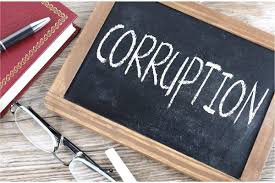Ericsson’s DPA Breach Conduct – Failures to Disclose and Report (Part II of III)

Ericsson’s breach of its 2019 Deferred Prosecution Agreement reads like an internal investigation horror show. It is every investigator’s nightmare scenario – failure to discover evidence that was available to inform and understand the full scope of corporate misconduct. For Ericsson, these failures have undermined the integrity of its corporate commitment to compliance and ethical culture, damaged even further its reputation and threatened its relationship with the Justice Department and government regulators.
Paragraph 5 of the original 2019 DPA provided, in substance, that Ericsson shall cooperate fully, and shall truthfully disclose all factual information, including any evidence or allegations and internal or external investigations about which Ericsson has knowledge.
Paragraph 6 of the original 2019 DPA provided, in substance, that Ericsson shall promoptly report any evidence or allegation to DOJ, in the event that Ericsson learns of any evidence or allegation of conduct that may violate the FCPA anti-bribery or accounting provisions.
DOJ determined that Ericsson violated both of these provisions and in October 2021 informed Ericsson that it was in breach of the original 2019 DPA.
DOJ cited two relevant violations:
- Ericsson’s failure to truthfully disclose all factual information and evidence regarding the Djibouti scheme, the China scheme and other potential violations of the FCPA anti-bribery or accounting provisions; and
- Ericsson’s failure to promptly report and disclose evidence and allegations of conduct related to its historical business activities in Iraq that may constitute a violation of the FCPA.

Djibouti and China Investigations
Ericsson failed to disclose relevant information to its activities in China and Djibouti, which substantially hindered DOJ’s ability investigate and prosecute certain individuals and criminal conduct.
In its original Statement of Facts included in the 2019 DPA, the Djibouti bribery scheme stated that between 2010 and 2014, [Ericsson], though certain of its employees and agents, including Ericsson Egypt, Employees 1,2, 3 and 4, paid approximately $2.1 million in bribes to three foreign officials in Djibouti, to win a contract valued at over 20 million Euros.
Ericsson failed to disclose that until May 2021a significant May 2011 email (which was in Italian) between two of principal Ericsson executives who orchestrated the Djibouti bribery scheme. In the May 2011 email, Employee 1, the Head of the Customer Unit in North East Africa informed Employee 3, a high-level executive, that Ericsson had just won the contract and had been assisted in that effort by its agent, “who is [Foreign Official 2] in person!” Employee 3 replied, “Ok, Understood.”
The May 2011 email was responsive to search terms agreed upon between DOJ and Ericsson had the search included terms in Italian. In addition, the May 2011 email was part of a broader email chain about the contract. Prior to the DPA, Ericsson produced branches of the same email chain, but failed to produce this key piece of evidence, which confirmed that its executives had knowingly paid a foreign official to obtain the telecommunications contract. The disclosure failure prevented DOJ from bringing criminal charges against certain individuals.

In its original Statement of Facts included in the 2019 DPA, the China bribery scheme stated that between 2000 and 2016, [Ericsson], though certain of its employees and agents, including Employees 5,6,7,8 and 9, caused tens of millions of dollars to be paid for various agents, consultants and service providers in China, a portion of which was used to provide leisure travel and entertainment to foreign officials associated with a specific telecommunications company.
Ericsson failed to disclose a significant email than an Ericsson Manager for the North East Asia Market, which included China, sent to a senior officer at Ericsson in February 2018. In this email, the Ericsson Manager raised several allegations against former senior executives of Ericsson and its Asia subsidiary, including Employees 5, 6 and 8, who played central roles in the China criminal scheme.
Specifically, the Ericsson Manager alleged that the China senior executives engaged in improper relationships with third-party agents who were central of the China criminal scheme and had approved of very large payments from Ericsson agents without any work being performed by the agents. In the February 2018 Email, the Ericsson Manager also alleged a “conspiracy by certain of the top management in the company to withhold information” and noted that the “conspiracy may also be criminal if it was to withhold information from the Board or the US authorities.”
After receipt of the February 2018 Email, senior leadership of Ericsson recognized the significance to the then-ongoing U.S. investigation and immediately asked Ericsson’s prior outside counsel to investigate the allegations. For more than three years, Ericsson failed to produce the February 2018 Email or disclose all the facts gathered during its independent investigation into the February 2018 Email. Ericsson did not disclose the February 2018 Email until April 2021. The late disclosure harmed the United States’ ongoing criminal investigation.
Failure to Produce Responsive Documents
For many years, including prior to and during DOJ’s investigation, Ericsson maintained hard copy records of relevant documents, including agreements with third parties, invoices and due diligence files, in safes and locked filing cabinets in secured storage areas in basements of various buildings at its headquarters in Sweden. In addition, Ericsson personnel maintained two USB drives that contained records regarding third-party payments and agreements. Ericsson failed to produce these materials even though some employees knew of their existence since as early as 2015. Specifically, certain Ericsson employees and now former executives, as well as prior outside counsel, were aware of these records and understood they were required to produce them to DOJ.

Failure to Disclose Evidence of Iraq Investigation
Two weeks prior to entering into the 2019 DPA, and at the direction of senior corporate leadership, Ericsson’s prior outside counsel disclosed general information concerning a new internal investigation concerning Ericsson’s operations in Iraq. Prior outside counsel’s disclosure omitted key details related to Ericsson’s investigative findings. Ericsson finalized the Irag investigation report on December 11, 2019, five days after entry of the DPA. Ericsson’s outside counsel did not update DOJ on the findings and conclusions of its investigation despite being required to do so by the terms of the DPA.
More than two years later, in February 2022, DOJ and Ericsson received requests for information from an investigative journalist consortium concerning Ericsson’s operations in Iraq. Ericsson then reviewed its original disclosure by prior outside counsel in 2019. With the assistance of new outside counsel, Ericsson provided an updated disclosure in 2022, which included information and evidence of possible FCPA violations and other serious misconduct that had not been previously provided to DOJ in 2019.
The original 2019 Iraq Disclosure, which had been provided through a telephone call conduct by prior outside counsel, omitted material facts and information, as well as evidence of possible misconduct known to Ericsson and prior outside counsel. The full details of the Iraq investigation were not disclosed to DOJ until after Ericsson became aware of the news report in 2022.















